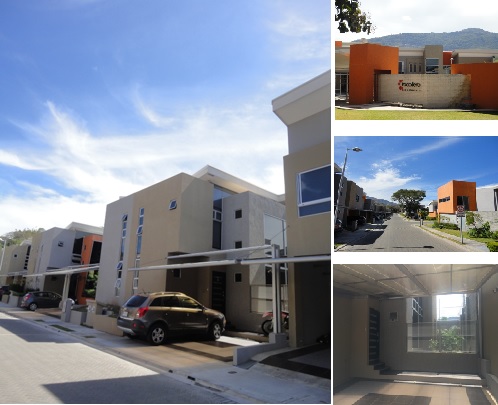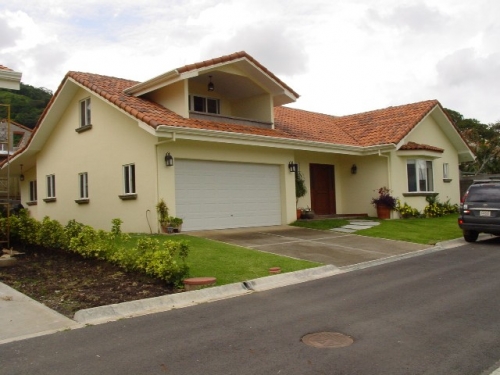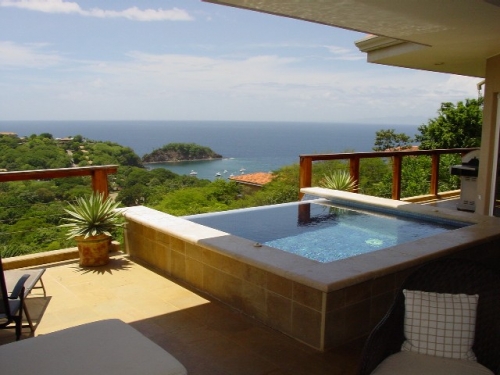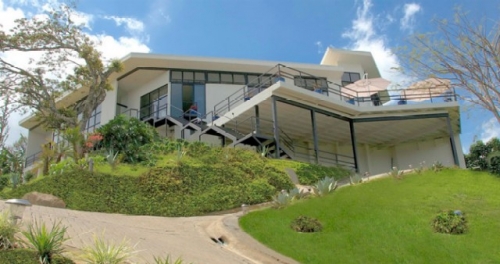Costa Rica Guide
Costa Rica Real Estate
List your property today!
Inclusion of real estate listings at Costa Rica Guide is
absolutely free of charge.
Featured Properties
Costa Rica Guide - Costa Rica Real Estate
Factory town: it is rare that a single company can unilaterally change the trade flows in a country, but Intel has done just that for Costa Rica
Larry Luxner
Latin CEO: Executive Strategies for the Americas
September 1, 2000
IN THE OLD DAYS, CENTRAL America's economies were so dominated by United Fruit and other US-based agribusiness companies that these impoverished countries came to be known as "banana republics."
Today, at least one nation--Costa Rica--is on its way to becoming a "microchip republic," thanks to the enormous investments of a single US multinational: Intel Corp. And no one seems to be complaining very loudly.
"Last year, Costa Rica's GDP grew by 8.3 percent, and we were 3.8 percent of that," boasts Danilo Arias, manager of corporate affairs for intel in Costa Rica. "We are the most visible example of the country's success in attracting foreign investment."
At present, Intel accounts for 8 percent of Costa Rica's GDP and more than a third of the country's US$6.3 billion in exports. Last year, microchips surpassed the dollar value of bananas, coffee and textiles to take the top spot among Costa Rica's exports. At US$2.08 billion for 1999, microchips accounted for more value in exports than the other three combined. The runner up, textiles, came in at a distant US$637 million.
Why the sudden imbalance? One single chip is worth between US$400 and US$800, depending on its configuration, and Intel ships in 25-unit boxes. Last year, Arias says, the company exported some 20 million units, mainly to the United States and Western Europe.
Intel began manufacturing in Costa Rica in mid-1998, and since then it has opened a second factory on the site. The plant is used to assemble products using raw materials and components made at other Intel plants. "We take that core microprocessor and add all the electronic circuitry that will give the component connectivity to a computer. Of the four steps--fabrication, selection, assembly and testing--we do the last two here."
Eventually, up to 25 percent of all Pentium chips and other Intel products for personal computers worldwide will be assembled in Costa Rica, Arias says. That's quite a distinction for a small country known mainly for its volcanoes, rainforests, gourmet coffee and hand-painted oxcarts.
"We are no longer competitive with Honduras, Nicaragua, Guatemala or El Salvador for low-wage jobs. That's why we're trying to attract more high-tech companies like Intel to Costa Rica," says Lynda Solar, executive director of the Costa Rican-American Chamber of Commerce. Intel, she says, has had a strong impact on the local job market, increasing demand for qualified engineers and raising salaries.
When Intel was considering locations for its plant, Mexico, Brazil and Chile were the top choices, says Arias, who worked for Costa Rica's investment promotion agency before joining Intel in December 1996. Costa Rica was the dark horse candidate. Ultimately the company was attracted by the nation's high literacy rate, a skilled workforce that spoke English, political stability and respect for the rule of law Says Arias: "It's not complicated to do business in this country. Things are done the way they're supposed to be done."
The US$29 billion tech giant, based in Santa Clara, Calif., so far has hired 2,000 employees and invested US$400 million in its 52-hectare factory complex just outside San Jose. Intel plans to have up to 3,500 workers on its payroll by 2001, making it by far the largest private employer in the country.
"Every employee receives stock options, computers for their families and three annual bonuses--two hinged on company performance and one on the performance of the department that the employee belongs to," says Arias.
But Solar says Intel's regimented, corporate style turns off some Costa Ricans. "Not everybody likes the Intel mentality," she says. "It's a 24-hour job, and they have a difficult work ethic. You're really married to the company when you work for Intel."
Costa Rican Exports (In Millions of Dollars)
1995 1996 1997 1998 1999
Bananas 635 578 560 632 500
Coffee 412 378 391 356 252
Textiles 703 674 788 659 637
Microchips - - - 549 2,081
Copyright 2000 CEO Publishing Group, Inc.
Note: The above information is not to be used for any other purpose other than private study, research, criticism or review. Thank you.






